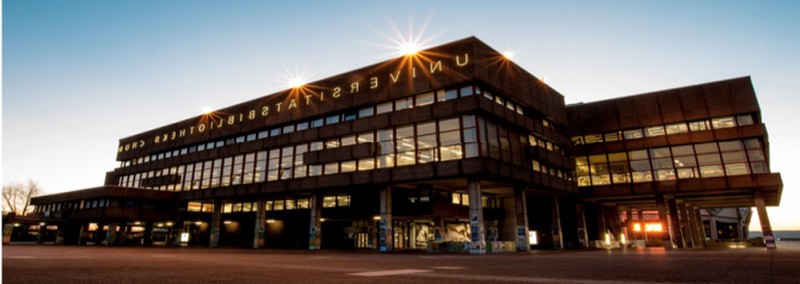Ruhr-Universität Bochum

The Ruhr-Universität Bochum unites 20 faculties with over 43.000 students at one campus. It is deeply embedded in the Ruhr area, Germany’s largest urban agglomeration with over five million inhabitants, and Bochum at its core. Former home to coal mines and heavy industry, the Ruhr area now offers a broad range of cultural activities. Historically, the region was a hotbed of political and experimental filmmaking throughout the 1960s and 1970s, accompanying the economic restructuring with provocative documentaries and bold avantgarde films. This spirit is still very much alive at the International Short Film Festival Oberhausen (in May), the world’s oldest short film festival. Today, the Ruhr area hosts numerous other film festivals as well, among them the Duisburg Film Week for documentary films (in November) and the International Women’s Film Festival in Dortmund and Cologne (in April). Plus, Düsseldorf with its film museum is only a short train ride away. Bochum’s own film culture is characterized by several arthouse and modern multiplex cinema, exhibiting the whole spectrum of current international filmmaking.
IMACS at the Ruhr-Universität Bochum is integrated into the “Institute for Media Studies” (IfM) which is part of the Faculty of Philology. With 8 full professors, 16 research associates, various fellows and lecturers, it is the largest of its kind in Germany. The IfM aims to cover the whole field of academic teaching and research in Media Studies.
Four different research areas within this field are of special importance for the IMACS program:
- Film theory and film philosophy, combining the history of film and cinema and, especially, their interrelations with other arts and media such as photography, television, radio broadcasting, video and digital media. Courses cover Hollywood genre cinema as well as European and Southern American cinema, documentary film, experimental, avantgarde and animation film. In addition to teaching at campus, we regularly offer field trips to German and international film festivals.
- Media forms of documentary practices and operations, especially beyond traditional documentary filmmaking. With a growing ubiquity and pervasiveness of documentary practices, we strongly believe that their study becomes crucial for an understanding of contemporary cultures and their various genealogies. In 2016, the IfM co-created a specialized graduate school which provides PhD candidates with the necessary skills and funding to study documentary forms and practices. For further information, see: https://das-dokumentarische.blogs.ruhr-uni-bochum.de/en/ueber-das-kolleg/forschungsprogramm/
- Gender Studies, with a strong emphasis on the entanglement of gender and media. The overall objective is not only to analyze media representation, but rather to address the mutual construction of gender and audiovisual media – be it the standardization of film color stock to highlight white skin color, or the body types of video game heroines. Courses within that study program are equally eligible for IMACS incoming students.
- Modern image and picture theory with a focus on digital imagery, its technical dimensions, formats, applications and also new approaches for its study. This area is closely tied to archives and their current migration into digital areas, but also to philosophical and ethical questions of today’s global image production, storage and circulation.
Teaching Staff
Languages
The language of instruction at Ruhr-Universität Bochum is German. However, within the IMACS program we offer at least three courses every semester that are to be taught entirely in English. In classes taught in German, it is also possible to participate in group discussions in English, to take oral exams in English, and to write term papers in English. In addition, incoming students can choose from a variety of courses offered by the English Department of the Faculty of Philology.
Nevertheless, we strongly encourage incoming students to take German classes in order to further benefit from their exchange experience. The University Language Center offers German classes on various levels, both before and throughout each semester. For further information, check their website.